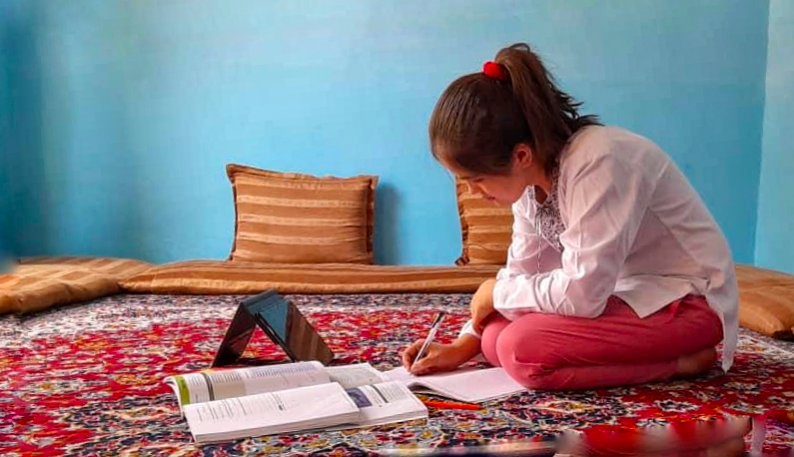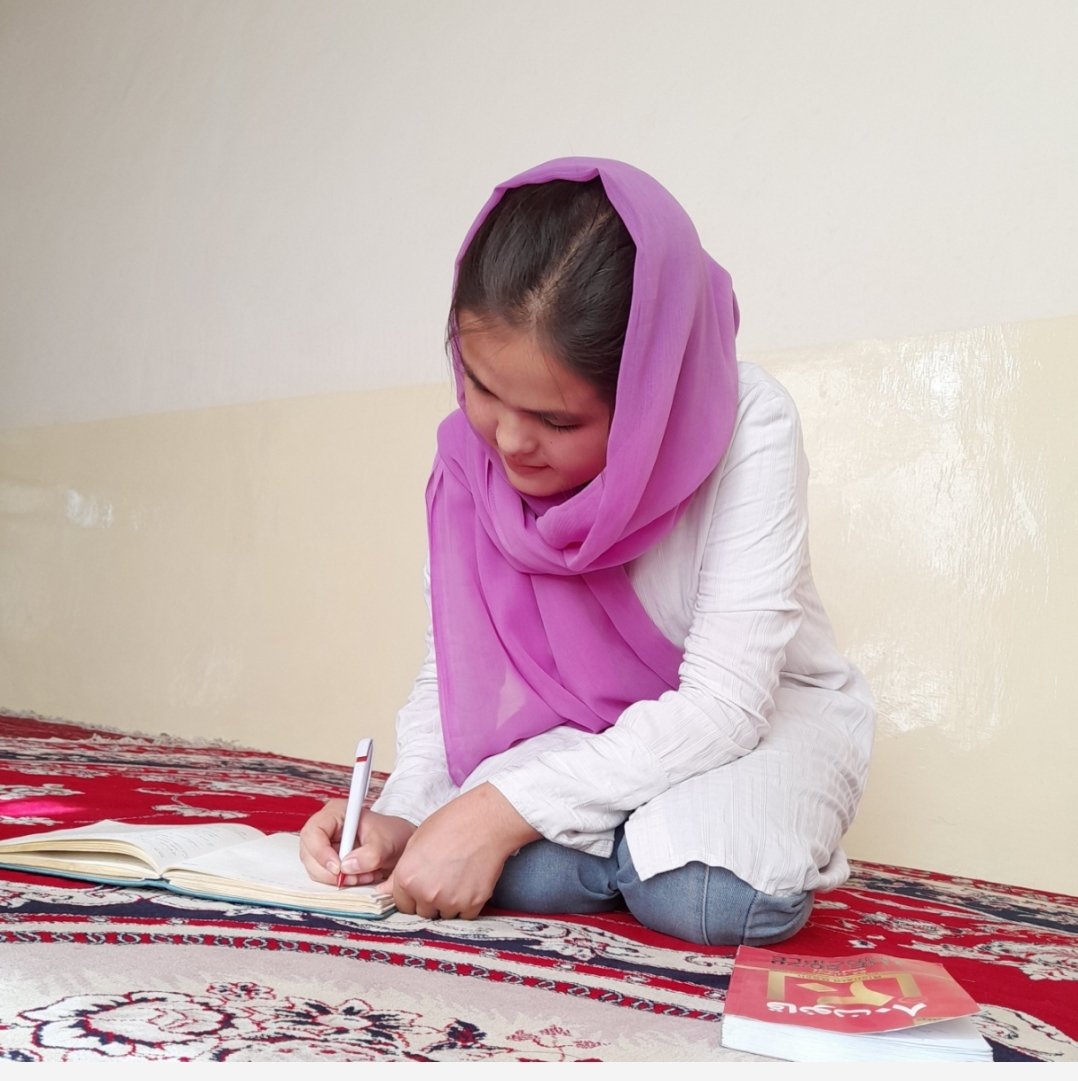
ENABLING FEMALE STUDENTS TO STUDY DESPITE THE BAN ON EDUCATION
Kabul, Afghanistan - Her dreams collapsed as she was on the edge of fulfilling her dreams - getting her undergraduate degree. Nazia Amiri, 21, is an anthropology student who lives with her family in Kabul. She used to study in Kabul University, the most looked after university in Afghanistan. She was on her way to make dreams come true, when everything fell apart. It was 2022, her last year at the university, when the de facto authorities of Afghanistan banned female students from attending their classes in high school and university.
“They say one flower doesn’t make it spring - I disagree!”
“I was only six months away from graduation. When the ban was announced, students were unsure whether the doors of universities will ever get re-opened for them”
- Nazia recalls
“I used to work which made me financially stable for my studies. With the ban, not only I was left out of university, but also I faced extreme poverty”
- She speaks
“It is said that one flower doesn’t make it spring. I disagree. One student can become a great changemaker in the future who might change the course of the whole country”
- Nazia expresses
The ban and then the uncertainty that followed, changed the lives of many students - forcing some to drop out and get married. Although she was not able to continue her studies, Nazia never gave up from working with other students and developing social networks. “I was one of the youths who led the debate club in Kabul. It was an online platform where students from various backgrounds could share their ideas and discuss academic topics. This way, we could continue learning from each other,” she speaks. It was not long after the ban on women to attend to their workplace, was issued. This prevented Nazia from continuing her role as a teacher, which was the main source of income for her.
“It was like a nightmare. We are not allowed to study nor work,” she adds in a broken voice. At the peak of her depression and feeling of helplessness, she saw a light in the middle of dark nights. “More than a year passed, and I did not see my classes again. I thought it was the end for me. That was when a friend of mine told me about an online education opportunity. I couldn’t believe it, because I wasn’t able to afford online education. However, it was free! Can you believe that?” Nazia expresses. Turns out, it was the opportunity provided through the E-Learning Platform. The E-Learning Platform is a program designed to empower young women in countries impacted by conflict or crisis to achieve higher education through online courses. With the help of partners like Bennington College and Bard College, the platform provided various free online credit courses for 6 months. In 2022, the network was able to support ten students to continue their studies from home until they all finished the courses. “It was a golden opportunity for me and other students to continue studying credit courses. It was important for me, first because it allowed me to complete my undergraduate credit requirements. Secondly, the courses were provided by international lecturers which were really high quality,” Nazia speaks.






